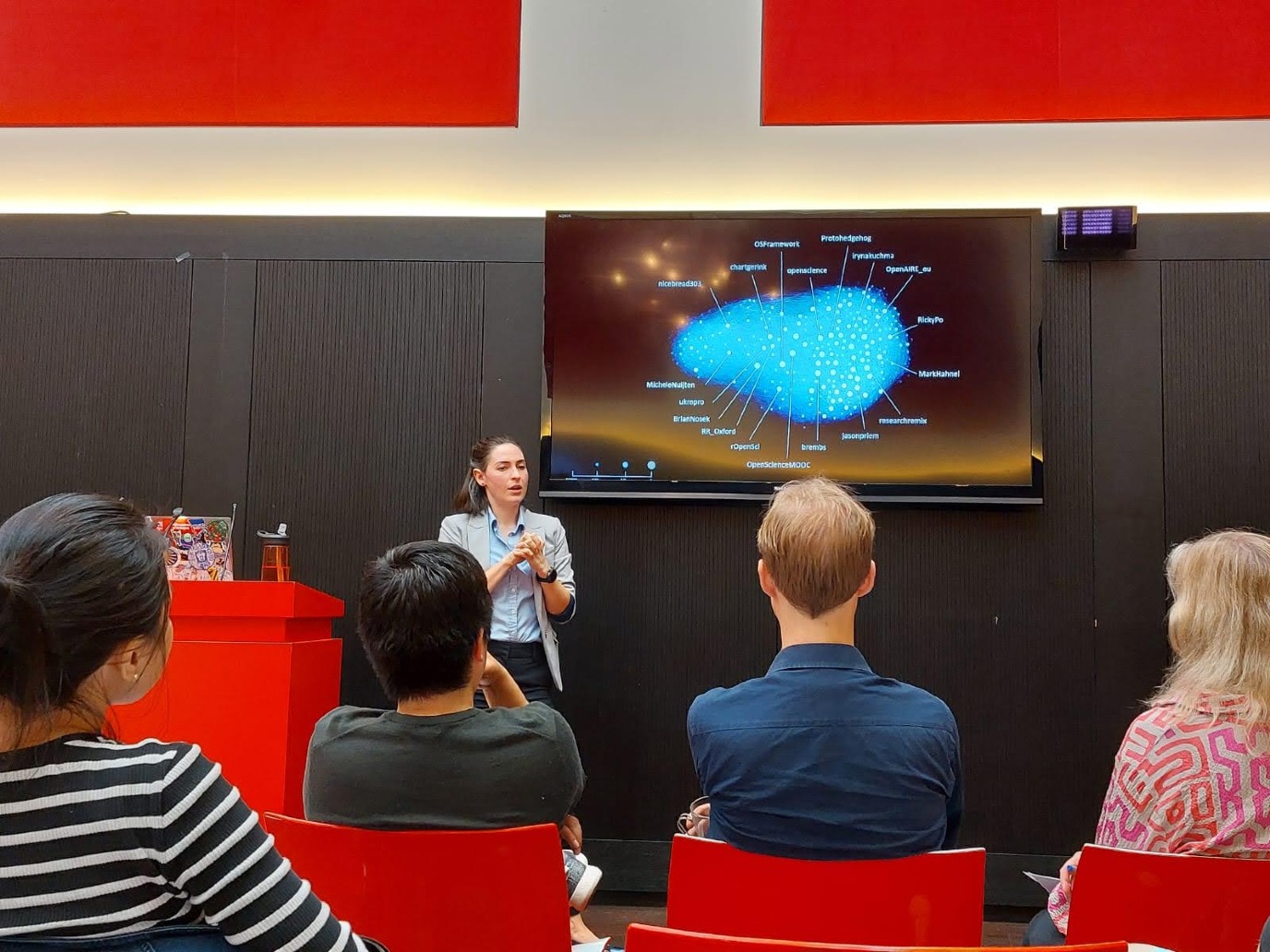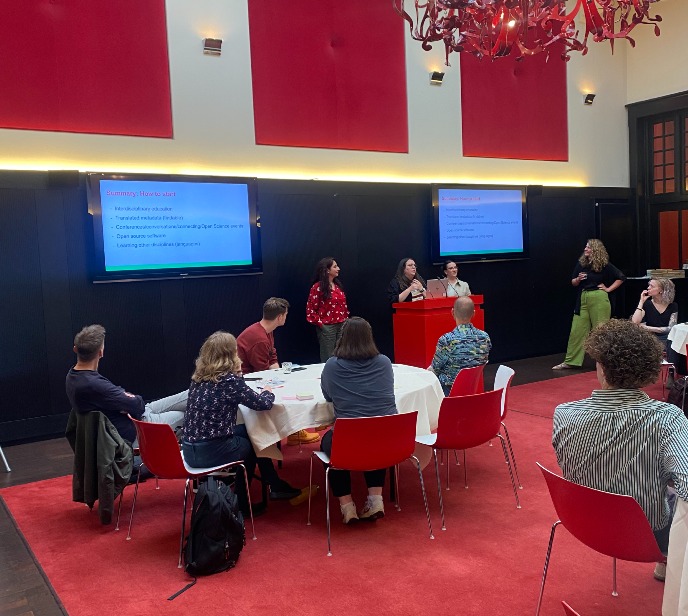Recap DCC Event: Building interdisciplinary communities through Open Science

Interdisciplinary collaboration is becoming more and more important for modern research. One way of stimulating such collaboration is by making research data and software FAIR (Findable, Accessible, Interoperable and Reusable). This is what researchers and support staff came together to discuss at the summer event organized by the Open Science Community Groningen ( OSCG ) in collaboration with the University of Groningen Digital Competence Center ( UG DCC ) at the Van Swinderen Huys on the 20th of June, 2024.
Open science communities
The afternoon began with a keynote by Dr. Sarahanne Field who talked about her research on social network analysis of open science on social media. She discussed how if we ignore the modularity of open science communities, we run a risk of creating strict norms that shut out marginalized groups from having a voice. She urged us to “cross-pollinate” our research and step out of our comfort zones and “keep our minds open to support heterogeneity in research”.

Abby Toth, a data steward at the UG DCC, gave a recap on important data and software management principles and highlighted key ways to make sure data and software are FAIR. This served as a starting point for attendees to later discuss special considerations when it comes to interdisciplinary collaboration.
Interdisciplinary perspectives
Two talks presented research from an interdisciplinary perspective. First Professor Natasha Maurits shared insights into her research in a talk titled “Facilitating interdisciplinary research in multimodal neuroimaging”. She discussed how her research is interdisciplinary by nature- combining mathematics, neuroscience, physics and more, but that collaborations can be made difficult due to privacy issues associated with patient data and ethical consent. Second, Dr. Lauren Seex presented examples of successful interdisciplinary research from the group “self-organsiation of social systems” and noted how collaborations may have been further stimulated through publishing FAIR data and software.

Following these talks, participants split into groups for table discussions that concerned different aspects of interdisciplinary research and FAIR data and software. Prompts guiding these sessions were 1) what is necessary to get started? 2) what are the key challenges? and 3) what are potential solutions? Lively discussions were spread over 4 tables with moderators from the UG and UMCG DCCs, as well as members from the OSCG. Participants were asked to write down key points on post-it notes- a task they took very seriously, with over 80 post-its being handed in! One thing that was really nice about the table discussions was that people were from different disciplines, which provided an opportunity for knowledge exchange and new insights about how collaborations and data are treated in different areas.
A shift in culture
During the break the moderators quickly went through all the post-its and found key themes to present during the post-breakout session summary. A few of the key themes included feeling that a lack of reward, recognition and consequence for (not) maintaining FAIR data and software means that researchers often do not prioritize it. Attendees felt that a shift in culture is necessary in order for people to prioritize important aspects of research outside of publications.
following the FAIR principles means your research will have more impact
However, even while we wait for this culture shift, it is important to keep highlighting that creating and maintaining FAIR data is not just extra work (as many people feel), but following the FAIR principles means your research will have more impact, you can get increased citations and you will be a more attractive collaborator! Another recurring theme was the need for ‘better integration’, both in terms of physical infrastructure supporting research data and software within and outside the university, but also between different support services (e.g., DCCs, ethical boards, and legal departments). All topics will be brought forward in important venues like policy advising, the UG Open Science Program, and improving provided services (e.g., consultancy, best practices and training).
The event ended with a borrel and great discussions among participants and staff. We had a great time and can’t wait to see you at the next one!
| Last modified: | 02 July 2024 10.42 a.m. |
More news
-
05 March 2025
Women in Science
The UG celebrates International Women’s Day with a special photo series: Women in Science.
-
16 December 2024
Jouke de Vries: ‘The University will have to be flexible’
2024 was a festive year for the University of Groningen. In this podcast, Jouke de Vries, the chair of the Executive Board, looks back.
-
10 June 2024
Swarming around a skyscraper
Every two weeks, UG Makers puts the spotlight on a researcher who has created something tangible, ranging from homemade measuring equipment for academic research to small or larger products that can change our daily lives. That is how UG...

